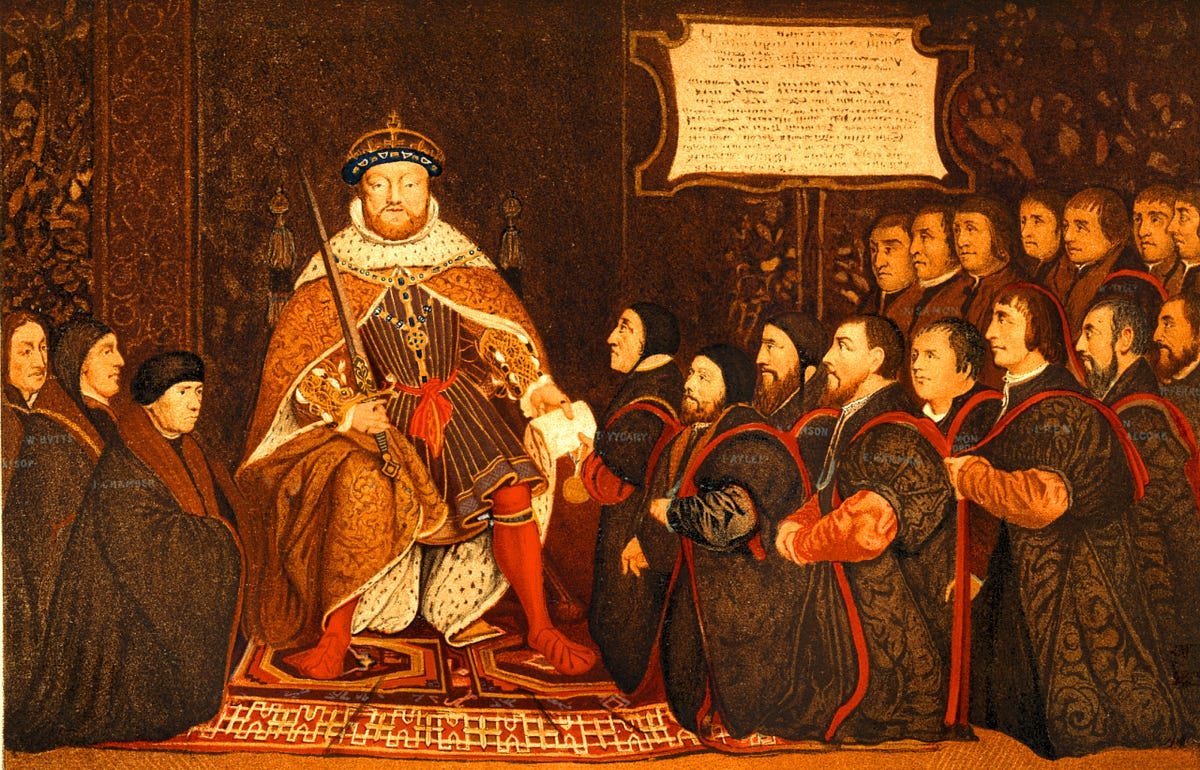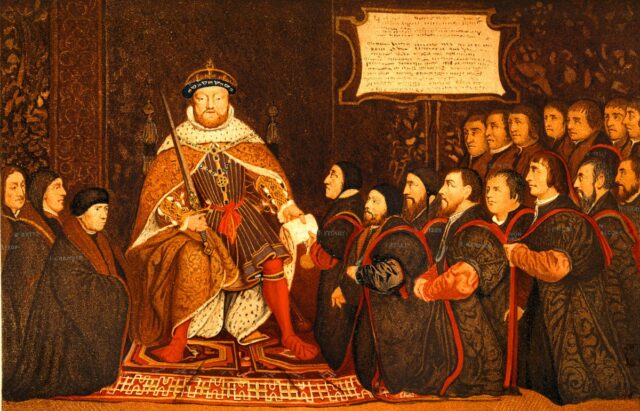When King Henry VIII found himself at odds with the Catholic Church, he did what any determined monarch with unchecked power might do—he built his own church. The formation of the Church of England in 1534 was not merely a political maneuver; it was Henry’s attempt to reshape religious worship in England. As Wayne Rowland aptly put it, “The Catholics weren’t going to have anything on King Henry, and he’d teach them. He wanted a divorce, doggone it, and he built his own church so that he could get a divorce.”
Well, that’s as good an excuse as any, I suppose.
But what Henry may not have realized at first was that he wasn’t just breaking away from Rome—he was creating a worship experience unlike anything seen before. His Church of England was going to be the finest church in the land, and Henry had a very particular idea about what it meant to truly worship God.
Four-Hour Hymns: The Gateway to Divine Connection
Henry didn’t just want to separate from the Pope; he wanted to reinvent the way people connected with God. And for him, that meant singing—lots of it.
He had no hymns that were less than 20 stanzas, and Sunday worship required four full hours of singing. The entire land would sing praises to God, their voices filling the air, rising like incense.
But here’s the thing, as Rowland points out: God doesn’t need verbiage. God doesn’t work through endless words or rigid rituals. God works through vibration, emotion, and honesty. When you’re honest in your emotions and faithful in that honesty with love—that’s when God answers your prayers.
And how does God answer?
By allowing you to evolve.
That’s what was happening in Henry’s churches. These people weren’t just mindlessly reciting doctrines or kneeling at the right times—they were creating something with honesty, emotion, and love in song. And the most amazing thing happened.
The Awakening: The Power of Music to Change the People
After these four-hour hymn sessions, people would go up to their priests and say,
“You know… you’re full of it.”
They began to question what they had been taught. Something about the power of the singing, the raw emotion, the connection to God—it opened their eyes. It made them realize, “This isn’t the power of God. That’s not how this works. You’re mistaken.”
And the priests, stunned, would reply, “What are you talking about?”
And the people would simply shake their heads and say, “I don’t know… but you’re mistaken.”
At first, it was just a few people here and there. Then, it spread. All over the land, people started waking up, and evolving in their spiritual gifts and abilities.
And that’s when the real trouble started.
The Suppression: Silencing the People
When people began to think for themselves—when they began to evolve—the authorities couldn’t have that.
Because if people woke up, if they truly connected with God through vibration and emotion rather than through rigid institutions and priests telling them what to believe, then what need would they have for the Church’s control?
So the authorities acted.
The Inquisition cracked down. People who refused to submit to the priests, experienced enough evolutionary spiritual growth to be effective in healing, and who dared to challenge religious authority, were arrested, hung, or burned at the stake. The Church could not allow people to access divine power and truth without them being in control.
And so, to make sure it never happened again, they made a simple, but devastating change:
They reduced all hymns to four stanzas.
Rowland asks, “How many stanzas are in your hymnals today?”
Not twenty. Not even ten. Just two or three.
And why? Because they’re afraid.
Because what happens when people start singing again—really singing?
What happens when people start waking up?
The Fear of True Freedom
Can you imagine if an entire country evolved all at once?
If everyone realized they didn’t need to be told how to find God, that they could feel God directly, through worship, vibration, emotion, and honesty?
Governments wouldn’t have control. Churches wouldn’t have control. People would be truly free.
And we can’t have that, can we?
Instead, we’re tied to a cart and told what to do. But the song is still inside us.
“And that’s why I put the music in my Silver Water, where amazing, evolutionary things can happen.”
Maybe it’s time to start singing again.


Leave a Reply